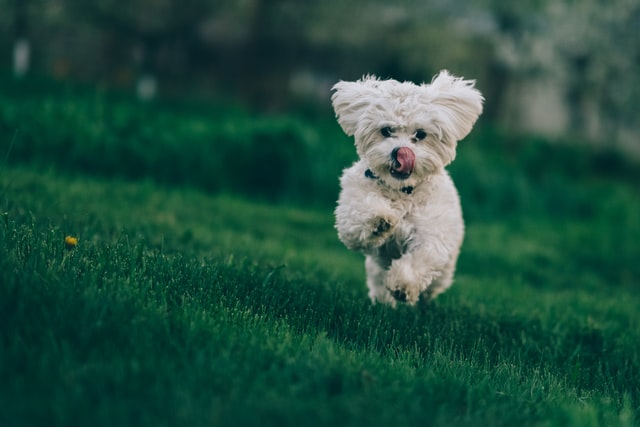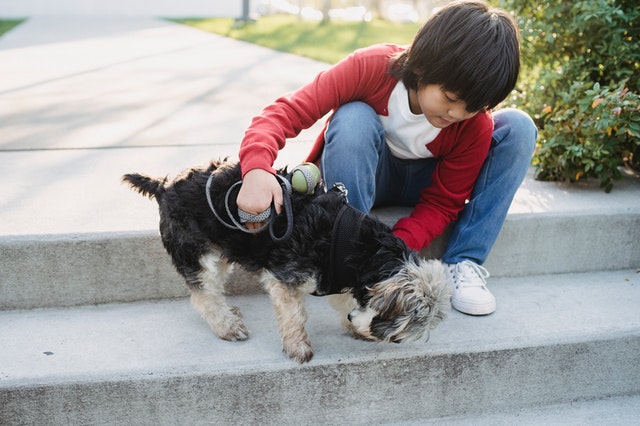Has your dog been smelling lately? Wondering what is causing that fishy smell? As dog parents, we always worry about our pooches and their well-being. It is concerning when your otherwise fresh-smelling dog starts to smell like fish. Worry not, it is quite common for dogs to sometimes emit a fishy odor. We are here to help you understand why your dog smells like fish and how to get rid of that. Your dog may have a problem but there is no problem that can not be solved and we are going to do just that.
This smell is not the result of what your dog has eaten but comes from the anal glands or sacs. It is most often a sign of a bigger problem lurking around. Are you asking yourself, what are these anal glands or sacs? These glands are nothing but tiny sweat glands that are situated on either side of the dog’s anus. It emits an unpleasant odor from the secretion it releases. This secretion is released whenever your dog poops, this smell is also a marker scent for your dog. This is the reason why dogs always sniff around other dogs anus for the poop smell as it gives away other dogs chemical information that is important. I’m sure you always wondered why dogs greet each other by sniffing under the tail, now you know why!
Reasons Why Your Dog Smells Like Fish:

Let’s take a look at some of the reasons why your dog smells like fish and what you can do about it that can help you get rid of that. You need to take care of your little dog to avoid any complications. This fish smell from dogs may be an indication of Anal Sac Disease. This is a broad term that covers every problem related to the anal glands. This disease is commonly seen in dogs that are obese and smaller breeds usually. This problem is rarely seen in large dogs.
Impactions
The anal sacs hold fluid and release it naturally when your dog poops, but when the sac is not emptied completely this causes Impactions. The fluid comes out every time your dog defecates but there are times when some fluid stays back in the sac. This fluid becomes dry with time and will lead to impactions.
When you touch, it will feel hard and it will cause your dog pain. There are various reasons for impactions like obesity, any abnormality in the sac, and soft stools that are not firm to pass through the glands. These sacs can fill with pus if it’s not treated timely and pose a serious problem for your dog.
Infections & Abscesses
Impactions, if not treated in time can infect the anal glands or sacs and can turn into an abscess. If it is not treated, the anal sac will become swollen and discolored. There are chances of the abscess rupturing which can further complicate matters and cause pain to your dog.
Anal Sac Tumors
Luckily Anal Sac Tumors are not common. Saying that it is important to know that tumors are serious and need medical attention. These tumors can obstruct the anal glands and cause complications leading to kidney failure. There is always a possibility of the tumor being cancerous and it can also spread to other body parts. An ultrasound and biopsy are required to detect the problem. The best way to treat a tumor is to remove it with surgery. Sometimes even the anal glands are removed.
Signs of Anal Sac Disease in Dogs
There are always signs that will hint towards Anal Sac Disease that you should look out for. An early indication of this disease is the fish smell from dogs. Don’t wait too long to call your vet when you see this sign. The vet can evaluate the situation better and nip the problem in the bud.
The fish odor may not be the only indicator, there are other signs to watch out for:
- When dogs scoot their rear over the floor
- If your dog licks or bites under the tail
- Difficulty with passing stools
- Making sounds while defecating
- Finding a lump around the rectum that feels hard
- Spotting pus or blood in the stools
If you see any of these signs, contact your vet to investigate the problem and timely treatment.
Dogs Vulnerable to Anal Sac Disease
As mentioned earlier some breeds of dogs are more susceptible to this disease than other breeds. Let’s take a look at what makes some dogs more susceptible than others:
- Breeds that are smaller like Terriers, Chihuahuas, Spaniels, etc.
- Dogs that are obese
- Dogs that have allergies; environmental or food
- Dogs that have hypothyroidism
- If a dog has skin mites
- A dog that has yeast or bacterial infection
How to Treat Anal Sac Disease & Your Dog’s Fishy Smell

A vet can easily treat Anal Sac disease at their office. The vet may need to physically empty the sac, this will eliminate the smell. The dogs that are more susceptible to Anal Sac Disease may need to frequently visit the vet to drain the sacs of fluid. Vets usually also suggest increasing the dog’s fiber intake for natural elimination of the fluid. You can also learn how to empty the anal sacs yourself under the guidance of your vet. Do it only if you can handle the smell.
However, an impacted gland will need the care of a vet. It has to be emptied with the help of a softening agent and also a rinse with saline. Likewise, an abscessed or infected gland will need antibiotics and antiseptics.
Sometimes, it is necessary to remove the anal sacs. There is a chance it may cause incontinence but it won’t affect the quality of life for your dog. The benefits of surgery are more than the risks.
Tips for Preventing Anal Sac Disease
Some tips that you can follow to prevent Anal Sac Disease. it’s not always the case that you can prevent such diseases but these tips might help.
- Try to add a good amount of fiber to your dog’s diet.
- Make sure your dog exercises regularly, this helps maintain weight and prevents your dog to gain weight.
- See to it that your dog is always well hydrated, encourage your pooch to drink lots of clean and fresh water.
- Check your dog’s stools periodically to spot any sign of pus, blood, or softness.
Other Methods to get rid of the fishy smell from dogs?
Want to know how to get rid of the fishy smell from dogs in other ways? You can aid their digestion with digestive support supplements. Many supplements are available that can help your dog’s digestive system. If your dog has soft stools, supplements can improve and make the stools firm. This will prevent impactions which can ultimately lead to a fish smell from dogs.
You can also use a good dog shampoo and conditioner to eliminate the fish smell from dogs. Shampoos and conditioners eliminate odors and help keep your dog’s coat shiny and healthy.
Conclusion
If you’ve followed along, you can now answer the question, why does my dog smell like fish. The different physical problems like Anal Sac Disease, infections, tumors, obesity, etc are some of the reasons for the fish smell in dogs. As you already know some dogs are more likely to get this disease but it shouldn’t worry you. You are now equipped to handle this situation if you follow the tips mentioned earlier. Watch out for the various signs of disease to prevent complications and get rid of the fishy smell from dogs with the tips.
Hey welcome to my blog . I am a modern women who love to share any tips on lifestyle, health, travel. Hope you join me in this journey!

Speak Your Mind